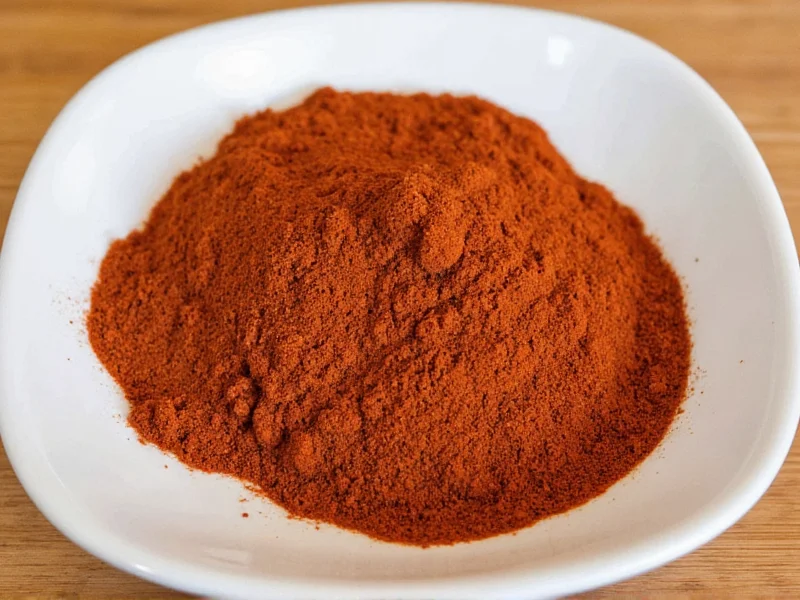Understanding Authentic Carne Adovada Seasoning
Carne adovada represents one of New Mexico's most cherished culinary traditions, with roots tracing back to Spanish colonial influences. The term "adovada" derives from the Spanish "adobado," meaning marinated or seasoned. Unlike many commercial spice mixes, traditional New Mexican carne adovada begins with whole dried red chiles rather than pre-ground powder.
The foundation of authentic carne adovada spice mix lies in the specific cultivars of New Mexico chiles. These include 'Sandia,' 'Heritage 6-4,' and 'New Mexico No. 6' varieties, which provide the characteristic earthy flavor with moderate heat (5,000-7,000 Scoville units). The chiles undergo a careful rehydration process before being transformed into the essential red chile paste.
Core Components of Traditional Spice Mix
While recipes vary among New Mexican families, certain elements remain consistent in authentic carne adovada spice preparation. The following table outlines the essential components and their traditional proportions:
| Ingredient | Traditional Proportion | Function |
|---|---|---|
| Dried New Mexico red chiles | 8-10 chiles per pound of meat | Primary flavor base and color |
| Garlic | 3-4 cloves per pound of meat | Aromatic foundation |
| Cumin | 1-2 teaspoons per pound of meat | Earthy depth |
| Oregano (Mexican preferred) | 1 teaspoon per pound of meat | Herbal complexity |
| Vinegar or citrus | 2-3 tablespoons | Acidity for balance |
Homemade vs. Commercial Spice Mixes
Many home cooks and restaurants prefer making their own carne adovada spice mix rather than purchasing commercial versions. The primary difference lies in the base ingredient: authentic preparation starts with whole dried chiles, while commercial mixes typically use ground chile powder.
When evaluating commercial carne adovada spice mix products, check for these markers of quality:
- Contains whole New Mexico red chile ingredients rather than generic 'chile powder'
- Avoids artificial colors or preservatives
- Includes vinegar or citrus components for authentic tang
- Lacks excessive salt (traditional recipes control salt separately)
Traditional Preparation Method
Creating authentic traditional New Mexican red chile seasoning requires specific technique:
- Toast dried New Mexico red chiles briefly in a dry skillet until fragrant but not burnt
- Soak chiles in hot water for 20-30 minutes until fully rehydrated
- Blend chiles with garlic, cumin, oregano, and vinegar into a smooth paste
- Sauté the paste in oil to develop flavors before adding to meat
- Simmer meat in the chile mixture for 2-3 hours until tender
This process creates the distinctive deep red color and complex flavor profile that defines proper carne adovada seasoning ingredients. The slow simmering allows the chile flavors to penetrate the meat thoroughly while the acids help tenderize.
Common Misconceptions About the Spice Mix
Many people confuse carne adovada spice mix with Mexican adobo seasoning. While related, they differ significantly:
- New Mexican adovada uses New Mexico red chiles as the primary ingredient, creating a thicker, paste-like consistency
- Mexican adobo typically features a tomato base with vinegar and spices, often in sauce form
- True authentic carne adovada spice blend contains no tomatoes, which are not traditional in New Mexican versions
- Commercial 'adovada' mixes often substitute generic chile powder rather than authentic New Mexico varieties
Storage and Shelf Life Considerations
Properly prepared New Mexico chile pepper spice blend maintains quality under specific conditions:
- Refrigerate prepared chile paste for up to 1 week
- Freeze in ice cube trays for longer storage (up to 6 months)
- Dried chiles maintain quality for 6-12 months in airtight containers
- Commercial mixes typically last 1-2 years unopened, 6 months after opening
For best results when using frozen chile paste, thaw overnight in the refrigerator before incorporating into your homemade carne adovada recipe spice mix. Avoid repeated freezing and thawing, which degrades flavor quality.
Perfecting Your Carne Adovada
Even with the right traditional New Mexican cooking spice mix, several factors influence final results:
- Meat selection: Pork shoulder (butt) provides ideal fat content for tender results
- Chile quality: Seek out New Mexico-grown chiles labeled with specific cultivar names
- Simmering time: Minimum 2 hours allows flavors to fully develop and meat to become tender
- Acid balance: Adjust vinegar or citrus to taste after cooking completes
When preparing how to make carne adovada seasoning mix from scratch, remember that New Mexican cuisine values simplicity and quality ingredients over complexity. The distinctive flavor comes from the chiles themselves rather than numerous added spices.
Serving Traditions
In New Mexico, carne adovada follows specific serving customs that enhance the New Mexico red chile paste for carne adovada experience:
- Serve over warm tortillas or sopaipillas (puffed fried bread)
- Accompany with rice and beans as standard side dishes
- Offer fresh chopped onions and cilantro as garnishes
- Pair with a mild green chile sauce for contrast (though not traditional in all regions)
The dish's versatility allows for adaptation while maintaining authenticity. Some modern interpretations include using the carne adovada seasoning ingredients with chicken or jackfruit for vegetarian versions, though traditional preparation always features pork.











 浙公网安备
33010002000092号
浙公网安备
33010002000092号 浙B2-20120091-4
浙B2-20120091-4